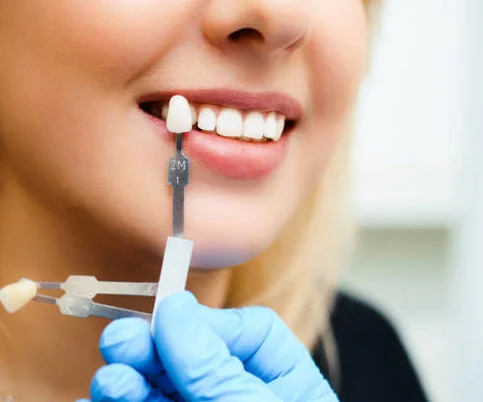Dental crowns are a practical solution in modern dentistry, offering restorative and cosmetic benefits. For individuals dealing with cracked or decayed teeth, crowns provide a reliable option to restore function, appearance, and oral health. Here is more information on these dental devices, their uses, and why they are an effective choice for repairing damaged teeth:
What Are Dental Crowns?
A dental crown is a fixed prosthetic device that is used to restore a damaged tooth. Shaped like a cap, it is placed over a tooth to cover its visible portion. This provides both functional support and aesthetic enhancement.
Crowns are typically custom-made to enable a precise fit and natural appearance, often crafted from materials such as porcelain, ceramic, or metal alloys. They act as protective coverings for vulnerable teeth, reinforcing their structure and restoring their original size and shape. They are designed to blend seamlessly with natural teeth, offering an effective and long-lasting restorative solution.
How Do They Address Cracked and Decayed Teeth?
Cracked and decayed teeth require reinforcement to prevent further damage, and dental crowns are highly effective in providing this. For teeth with cracks, crowns act as a binding structure, reducing the risk of worsening fractures. They create a durable barrier that absorbs the forces of chewing and biting, reducing the potential for pain and additional breakage.
For teeth affected by significant decay, crowns offer a means of restoration by replacing the damaged portion. The crown acts as a robust shield, protecting the remaining healthy tooth structure from bacteria and additional decay. Whether addressing structural integrity or minimizing sensitivity, crowns are a dependable approach to restoring the function and health of damaged teeth.
What Does the Process Involve?
The process of getting a dental crown typically takes place over two appointments. During the first appointment, the dentist prepares the tooth by removing any decayed or damaged tissue and shaping it to fit the crown. A filling material may be used to build up the tooth’s structure, enabling a secure fit for the crown. An impression of the prepared tooth is then taken and sent to a dental laboratory for crown fabrication.
While waiting for the permanent crown, a temporary crown is placed to protect the tooth. At the second appointment, the custom-made crown is cemented onto the prepared tooth. The dentist checks for proper alignment and makes sure the crown fits comfortably. The process is straightforward and results in a fully restored tooth in both function and appearance.
What Are the Benefits?
Dental crowns offer numerous advantages for patients with cracked or decayed teeth. These include:
- Durability: Crowns are made from strong materials designed to withstand daily use.
- Improved Appearance: They restore the natural shape, size, and color of the tooth, enhancing your smile.
- Enhanced Functionality: Crowns restore the chewing and biting ability of a damaged tooth.
- Preservation of Natural Teeth: They protect weakened teeth from further damage, reducing the need for extractions.
- Long-Lasting Solution: With proper care, dental crowns can last for many years.
Their benefits extend beyond functionality, making them a practical choice for restoring oral health and self-image.
Improve Your Oral Health Today
Dental crowns are an effective solution for addressing cracked and decayed teeth. They provide protection and enhance function and aesthetics, fostering better oral health. If you are experiencing dental concerns or believe a crown may be the right option for you, consult with your dentist to explore treatment options. Take the first step toward improving your dental health today.
- Zirconia Cap Price: Estimated Cost & Its Long-Term Benefits
- FREHF – The Revolutionary Future Of Human-Centered Technology!
- Adsy.Pw/Hb3 – Boost Your SEO And Drive More Traffic!
- Fitness Based Vacations By Timeshealthmage.com!
- TimesHealthMag Tips For Improving Sleep Quality – Expert Advice For Better Rest!


Leave a Reply